Cover
Mark Kelley – Hey, Hey, Hey, Hey!, October 2014 Issue
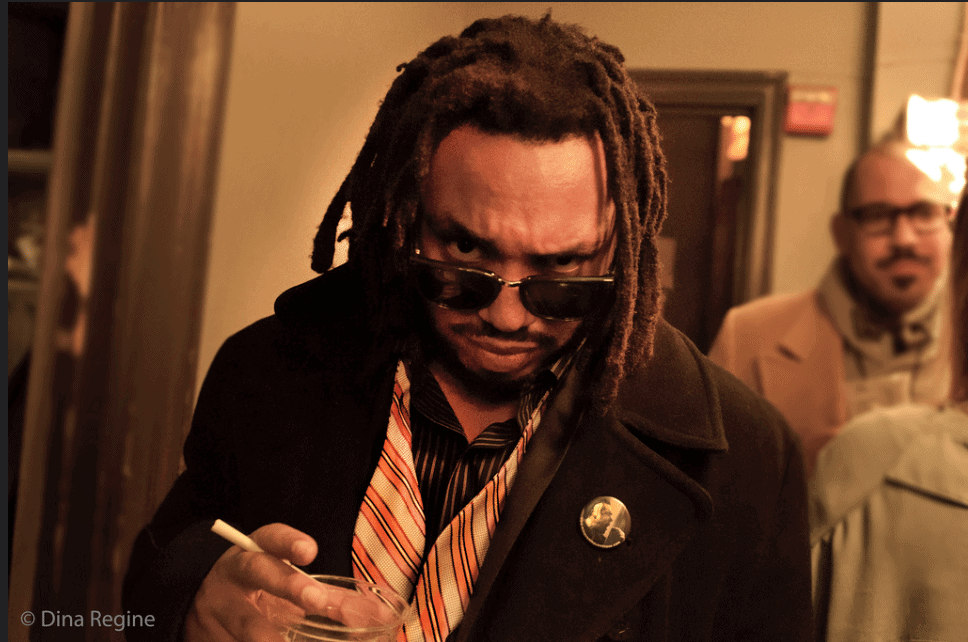
Bass Musician Magazine – October 2014 Cover Interview with Bassist Mark Kelley…
As the call and response of the Tonight Show with Jimmy Fallon theme kicks in, there is an immediate assertiveness to the bass sound. After the vocal refrain, the bass line walks and winds though the lower register, pumping low tones as the opening scenes play. When America’s favorite late night host appears through the curtains at 30 Rockefeller Center, he is greeted by the final phrase of the theme and the deep, rolling bass coming from stage left.
Whether the audience and those faithfully gathered around their televisions at home realize it, they are hearing late night history in the making. Fallon is most certainly altering the game with his style of humor; however, one of the most important changes in late night happens during the opening theme, as guests walk on, and as bumpers to commercial breaks. The Roots, one of the land’s most innovative, creative, and boldest bands, is redefining the sound of the Tonight Show each and every night.
At the core of the late night sound revolution is bassist Mark Kelley. Whether providing driving bass for the theme song, laying down slippery tones behind lyricist Black Thought during a commercial break, or morphing seamlessly into background music for the latest musical satire, Mark holds the late night bass chair with an undeniable and completely appropriate swagger.
While the Roots have been together for over two decades, Mark joined in 2011 after former bassist Owen Biddle left to pursue other projects. While easy to see now, bringing Kelley into the Roots crew was the perfect move for bandleader Questlove to make. When the call came to Mark, he had a musical history that already included an education at Berklee College of Music and time on stage with Mos Def, John Scofield, and many others. In addition, Mark spent an extended tenure in Meshell Ndegeocello’s band that was, as he puts it, “the best experience in music that I’ve ever had.”
When the call came in 2011 to join the Roots, Mark’s life changed completely. The Roots had already started their transformation of late night music as the house band for Fallon’s previous gig, Late Night with Jimmy Fallon. Mark was thrust into the spotlight of network television and also jumped into the Roots’ demanding schedule of touring and recording. Mark’s contributions can be heard on the Roots’ release that year, titled Undun. In 2013, Mark laid down deep, dark grooves for the Roots’ collaboration with Elvis Costello, Wise Up Ghost.
In February of 2014, Fallon took over the Tonight Show and the Roots began their historical campaign to change late night music forever. In addition to the demanding time with the show, Mark and the Roots continue to press forward with their own music. ...And Then You Shoot Your Cousin features Mark holding down the low end for the brilliant concept album. As if those demands weren’t enough, Mark continues to gig throughout New York, and always pressing forward in every genre of music.
As the Tonight Show closes, Fallon dashes off stage and into the audience for his victory lap for the night. As he does, viewers can catch Mark swaying back and forth as the bass tones of the closing song punch through the air. If one looks very closely, you can also detect the smile of the bassist making late night history.

Photographer, Gregory Ernest
In the past three years, you’ve joined the Roots, which immediately thrust you onto the late night stage with Late Night with Jimmy Fallon. Then, Jimmy’s move made you the bass player for the Tonight Show with Jimmy Fallon. What was that transition like?
Yeah, it’s been crazy! Before I was in the Roots, I was with Meshell Ndegeocello for about five or six years. I played in her band for that time; the band kept changing, but I was the one person who stayed in that band through those different transitions. Around that time, I had a kid. When you’re a musician by yourself, you can live off of waiting for the phone to ring, but when you have a kid on the way, you have to start thinking about other ways. I was doing a bunch of club gigs in New York City. I was always the go-to guy whenever the bass player couldn’t make it for whatever their regular gig was. I played a lot of one-offs and was just waiting to get the one, regular, steady gig. Meshell was pretty regular, but I wanted something where every month I could count on being out for a couple of weeks or more. I started looking for Broadway shows, but that’s a real hard gig to break into. It is a lot of knowing people, but I needed something to happen right away.
I decided that I would move back to Texas, where I’m from. I’m from Houston, but I went to Austin to check out places and to see what the general vibe was. The day I got to Austin, 15 minutes after I checked into my hotel room, I got a call asking if I wanted to join the Roots! Of course, immediately I was like, “Absolutely!” What was a trip to look for a place to live and have a transition in life ended up being a really cool short vacation, time to check out my parents, then going back to New York and start my new job.
You had worked with Questlove a few time before, right?
I had done a couple of things with Quest before that. The way I met Quest: [he] was curating a show with a bunch of different musicians and the bass player he was going to use was Christian McBride. Christian was on the road at the time and couldn’t make the rehearsals that they were doing. Somebody recommended me, just to sit for him just for the rehearsals. That ended up being a better audition for me than I could ever have, because it ended up being 5-6 hours of me playing for a show that I wasn’t going to play in, so there was no pressure on me. It was really just jamming for a rehearsal so that there would be bass on the recordings for Christian. From that, our now deceased manager Richard Nichols gave me a call and asked me if was interested in doing some songs on this Betty Wright record that Quest was working on. So, of course, I was like, “Sure, I’d love to do that!” I kept getting little calls here and there from them, asking me to sit in and asking me to play their Fourth of July festival. I felt like it was potentially the beginning of getting calls from The Roots for side work here and there. I felt like they were pulling me in just to be another person in their camp of people to work with. Within a month and a half of meeting them, I was in the band!

Photographer, Dina Regine | dinareginephotography.com
By joining the Roots, you immediately become the bass player for Late Night With Jimmy Fallon.
For a long time my parents, my mother especially, would tell me whenever we’d watch TV, “That’s what I want for you. I want you to have a gig like that so I would know you would have a steady gig and not be freelancing.” It would go in one ear and out the other. I would say, “I’m fine where I am.” But, it was great to get that gig because there are so many types of music. It’s a really cool gig – I went to a performing arts high school and working here is reminiscent of that.
Because there’s so many creative things happening at once?
Everything! There’s acting, there’s music, all kinds of art going around the show. We put another show together every day, then go on the air and record it, and we come back tomorrow and do it all over again! In the beginning, it was kind of nerve wracking, because I’d never done that before and everything’s so quick. We prepare the music we have to play for the day, we run through those motions, and then we might be needed on set. We might have to do a sketch where we have to talk or we may just have to play the music for whatever sketch it is. Everything happens so quick. Everything is put together basically between the hours of 9 to 5. Depending on what we’re doing, the latest we’re in is about 2 o’clock, while the earliest we’re in is 9 or 10. We do everything we have to do for the day, record it, and then we’re out. It’s a crazy fast day!
With the move to the Tonight Show with Jimmy Fallon, you become part of a television institution. In addition, the Roots have broken the mold by being a band and a house band, at the same time. Do you ever think those types of things?
Absolutely, I think about that a lot! Being the Roots is more than just having one job. We do [the Tonight Show] and we’re also our own band. We do our own shows; we go on tour when we have hiatuses from the Tonight Show. If we have a week off, we might hit the road for a week. This past summer, we’ve been catching planes – we’d fly out to do a festival in Europe, play a 90-minute show, then turn right back around and catch a plane to get back to New York.
But doing that, it makes me think about a bunch of different bands that are house bands. I look at us and we’re a house band, but it’s different from everybody else. It’s different from just having a band of people just individually picked who don’t know each other, but just come together for the gig. We’re not randomly picked people, we’re a band, and we’re a hip hop band, which is way different from anything else that’s been happening on TV as far as house bands go. I often think about that. We joke in the band that one day we may be a “Jeopardy!” question.
“Who are the Roots, Alex?”
Right!
Do you think being a band, aside from your house band duties, brings a certain something extra back to the Tonight Show?
Absolutely! I’m the newest edition, but this is a band of people that has been together for years. The band has been going on since 1985. There have been a lot of different members, but it’s like a fraternity. Everyone is from Philly and when I go there I feel like an honorary Philadelphian, because I meet people that have been in this band. I think there’s a certain brotherhood that gives us a different relationship than bands that just come together and inherit the gig. It’s not just showing up, going through the motions, and then we’re out of here. There’s so many things that we do, I think it makes us a stronger unit for the show. Our inside jokes helps when we do bits where we have to talk to each other. Our natural flow with each other is a little bit different.
While every day can have different things thrown at you, are there any things that make up the backbone of a “typical day” for you?
Every day is different, there’s no telling what’s can happen. Even if your day is starting off with one set thing that we’re going to do, that one thing can change in a blink of an eye for any reason. Usually, we have theme songs that we have to write. A lot of times the writers will have a game or a segment that they’re doing and they’ve asked for a theme song. Usually, I’ll do theme songs myself – me and my engineer. Just for the demos I’ll do all of the instruments, then when they approve it, we all play on the show. That’s one thing that I do every day. Another thing is if they’re doing something satirically on like a Beatles tune or something, we’ll have to go on set and play that song, then they’ll make edits as to how they want the song to go. We have to be on set and run that several times. We also do things called “walk overs”, which are the songs that we have to pick for each guest that comes on. We have to figure out something creative that we’ll do. Most of the time Quest picks those songs, but sometimes if he can’t think of one or thinks one’s not good enough, he will open it up to everybody. It’s kind of like whoever has the best suggestion wins. We also do our commercial bumpers. If we have to do any talking bits, we have to go on set and rehearse that. Usually, it’s just a bunch of different musical things that we have to do and the acting is secondary.

Photographer, Fran Kaufman | wbgo.org/photoblog
You’ve just described a day absolutely full of new music to play and I don’t think I’ve seen you read music on stage. How do you keep track of all of the music you have to play in a single day?
The way that we keep track of stuff is by using our in-ear monitors. When we do commercial bumpers, or walkovers, or whatever, we record those. We have a studio in our room and we record those things. Before the show goes on, whatever we’ve recorded and applies to that day is on the computer in order – a set list, if you will. We skim through everything to apprise ourselves on what’s going on for that day. Then while we’re on set and Jimmy is talking or in the middle of a segment, Quest will be playing the next thing we have to play in our ears. What I do is click on my tuner, which mutes my amp, but I can still hear my bass through my in-ears. I can hear what we’re about to play and I can go through it. When he calls it out, we’re ready to play. That’s how we navigate the whole show; we keep the next thing that’s going to happen streaming in our ears for the entire show.
Another part of the Tonight Show is backing musical guests. How do you approach that part of the gig?
Usually we know about those things in advance, but I’ve also walked into work and someone says “We’ve added a guest for tomorrow.” It changes.
We have two different types of guests that we back. We have music guests, who are the main guests at the end of the show. When they come in, we come in around 9:30 or 10 o’clock in the morning and listen to the songs that they have to do. It depends on the artist, but when Paul McCartney was here, he did one song from broadcast, another song for the website, and after that he did 8 or 9 songs that was a concert just for the studio audience that didn’t get broadcast. Then you have somebody else who may have just one song.
Then we have sit-in guests, which are like influential musicians. Like, if Gene Simmons wanted to come and sit in, he’d be on stage and he’d get to play bass. He would be featured throughout all of our commercial bumpers. Those are a little more work because we have to get together a bunch of different songs that we’re going to play for them. We play through the commercial breaks; it’s like having a concert throughout the show.
Moving to your personal playing style, I’m struck by how you manipulate time. You don’t just play behind or on top of the beat, you seem to move time around to create a certain effect, based on the music you’re playing.
As far as my approach to time, I didn’t really get into that until I got into college. When I went to college, I moved from Houston to Boston and I started gigging a lot more. I could only do so much when I was in high school. My parents didn’t want me out in the city until really late at night, because I had to go to school the next day. When I got to college I was accepting gigs left and right, just because I wanted to play. During that time, D’Angelo’s “Voodoo” record came out with Pino Palladino playing bass. That entire album took our group by storm. I was doing a regular gig at this club called Wally’s in Boston and I had three nights a week there that I would play. During that time, that record came out and the band that I was in, we were only listening to that record, all the time. If you went to any of our houses, that’s what was always playing. We started playing a lot of those songs and that got me into paying attention to Pino’s approach to playing. That’s when I got into manipulating time a little bit.
A lot of times, depending if it’s hip hop stuff or certain groove things, one thing that I always try to do is to create a little bit of a flam between my bass attack and the kick drum. Also, I played a lot of jazz with some of the craziest drummers where, if I didn’t have an internal drummer, I’d be lost. Some of the drummers were so crazy, they’d play all kinds of accents and stuff that are not helping you figure out where ‘1’ is. They’re like those castles that the have for fun where they’re blowing around a lot of money and you’re trying to grab anything that you can! All of that was happening while I was at Berklee. Then with all of the different styles of music that I would play, I would always apply those things. Things always went to groove and funk when I was in college, but if I was playing jazz or playing rock I wanted to incorporate those elements that I knew and learned from other things. It made things a lot different, I didn’t sound like any other rock bass player, because I wasn’t approaching it like playing Michael Anthony would play it with Van Halen or the way that Flea would play it in the Chili Peppers. Not that either one of them are any type of ordinary bass player, but I always had my own way of looking at stuff and using all of those things I heard in college.
After Berklee, you played in Meshell Ndegeocello’s band. With Meshell being a bass player, what was your tenure with her like?
Working with Meshell, hands down, was the best experience in music that I’ve ever had. I learned a lot from her. I’ve learned a lot about bass playing from her. I’ve learned a lot about song writing from her. Working with her, I never had that boss-employee relationship with her. She and I became friends immediately when she asked me to play in her band. As far as bass playing, I learned a lot. We’d talk a lot about tone and sounds that I’d want. She always told me that your tone is in your hands and fingers; it’s not really in the bass that you’re using. You can use any instrument that you want to, but you’re still going to sound like you. Your sound comes from your fingers, not from the bass you’re using or your amp – those things help – but the basic sound of you is what’s in your fingers. Through that, watching her play I would hear things muted and I didn’t know how she was muting them. I couldn’t tell how she was getting the sounds she was getting. I had to pay attention, because she did a lot of things with her left hand on the fret board as opposed to the right, using a combination of both. I learned a lot of percussive stuff that she would do –interchanging how you play with the side of your thumb and your fingertips, playing closer to the bridge, playing on the freeboard…all of these different things. I started to pay attention and understand what she meant – it’s all in how you attack the bass and how you play. That was one of the main things that I learned from her: how to get so many different sounds, just from my hands.
She also taught me a lot about music production and about writing songs. She was like, “You can do a bass record, but you don’t have to be just a bass player. You can do something else; do something interesting! You don’t have to do a record where you’re playing songs and just playing the bass everywhere all over them. Figure out a way to make a record where you’re a bass player who made a great record that has great bass on it, but isn’t just appreciated by bass players. It can be a great record for everyone to enjoy and they don’t necessarily have to be a musician, just like you listen to anything else on the radio and people like it, it should be the same thing. You should make something that’s timeless and doesn’t necessarily have to be about you just riffing and playing a bunch of scales and licks and lines and everything else. Make a piece of art. “ That’s one of the greatest things that I learned from her.
For those who may only see you on the Tonight Show, it may go unnoticed that you are accomplished on upright bass as well. Do you still play upright?
Absolutely. This show, it’s more than a full-time job. I’m pulling triple and quadruple duty with all of the things that we have to do. Every now and then I still play my upright. As far as for the show, for certain hip-hop things, I’ll use an upright just so it sounds as close to what the song was.
Every now and then I get to play some upright on the show and I also get called to do little upright things here and there, but I haven’t been playing upright as much as I used to. I do have the plan of doing a trio organ record or some type of jam band-ish type situation sometime in the future where I’ll play upright on that, for the most part. There will be some electric, but my plan is for there to be a lot of upright on that project.
With all we’ve talked about, you have a lot on your plate and sometimes have to be a musical chameleon. How to you do this and maintain your own musical identity?
Even though we’re working like this, sometimes I have my nights free. Usually, I’m done by 6:30 and just to keep my own thing a lot of times I’ll go play with other people that are not in the Roots and are not artists on the show. I still go back and play a lot of the places that I used to go. I play in a couple of other bands. I have another rock band – I play with the guitarist with the Roots, Kirk Douglas – we have a rock trio thing that we do. I have another band I play with called Oceanographer. I do a lot of things with them, too; we rehearse a lot. I kind of keep myself involved in a lot of different things, so it always keeps my mind working and I always have different things I’m doing so I’m not just doing this. I still have my own musical adventures and my own things that I do, that aren’t just focused around here.
Seems like the perfect time to ask what the near future holds for you.
That’s a crazy question! I’ve been doing a lot of different things. My main thing that I want to do is that I want to put out a really good record. And I mean a record that that has a lot of different elements; not necessarily an electronic album as we know it, but some programmed elements. Just a really hip, groovy record. I’m talking to people and hopefully in the very near future I’ll get that stuff down. It would be really cool that if by the fall, a year from now, I would put that out and I would have some things to share with the public. That’s the main thing that I’m focused on now: trying to put out a really hip record. Not necessarily with an overload of an All-Star cast, but just people that I truly like to play with and that feel like need some exposure.
For all of these adventures, what gear are you using these days?
For my basses, I use Fodera basses. I love their basses. Everything they make is so solid. I can get so many sounds out of these basses. I love the way they feel. They’re tough basses. I’m not exactly the most responsible musician; my instruments tend to take a little bit of a beating! Especially when we’re on stage, we do a lot of running and jumping and I need something that’s durable, sounds good, and is always going to play. I’ve always dealt with their basses and their stuff is always really good.
Now I’m using Aguilar amps. On the show I use their Tone Hammer 500 and the smaller cabs that they have. I also use those in our studio. I also have one of their bigger cabinets that I use for a big set up whenever we play behind a musical guest or something. Their stuff is really incredible.
I also use a Motif keyboard. For hip hop or synth bass type stuff I tend to use the Motif. I use the Motif because I never know what I’ll be called to play – a bass sound to a violin sound to anything in between. I have no idea what I’ll have to do, so I just chose the Motif. It has some really great bass sounds in it. I have yet to not be able to find the sound I need on that keyboard.
People are always following other people’s steps. There’s this known bass player that uses XYC, then you come to a gig and every bass player is using the same thing. They see what people use then they think that that is the thing to use. Everybody asks me why I use this keyboard – I use it because it has those sounds in it! If they had one that was smaller, sure, I’d probably get that one, but I really like it because there’s not a sound that I can’t find. Everything from an old 80’s record to current hip hop and rap records that are out now. There’s not a sound that you cannot find in that keyboard. It’s all there.
The Tonight Show has a legacy element to it. How do you see that evolving over time?
As far as the Tonight Show, that’s something that will last 20-30 years. I foresee it’s going to be us. As far Roots shows, I’m not sure. I know that we’re still going to tour and do what we do, but the Roots used to hit the road 300-some-odd days out of the year before they Jimmy Fallon gig. Now, we go out on weekends here and there and go out on breaks. I plan on having my own side projects and things that I do on my own aside from the show and the Roots. Just to have my own outlet to be on my own and have some fun. For the future, I see us doing the Tonight Show and doing whatever else comes from that. Who’s to say? We haven’t even completed a year on the show yet and great things have already been happening, so I can’t even imagine where this could be in the next 10 to 15 years!
Lastly, you are a great electric and upright bass player, but what is your favorite classroom instrument?
The first time I played a classroom instrument, I played some bells. It’s such a challenge doing that, because some instruments are only in one key and there are certain things that we have to imitate. They come in with a well-orchestrated song and they expect us to play that with these instruments! But, I’ve found my niche on the kazoo! I can play in any key. It doesn’t matter because I can just sing it. I’ll take the bass line, but I’m not stuck to any particular thing, I can sing anything in pitch with the kazoo. That, so far, is my favorite classroom instrument.
Follow Marck on Twitter: twitter.com/markkelley
Bass Videos
Brian Bromberg, Paying Tribute to Scott LaFaro, April 2024
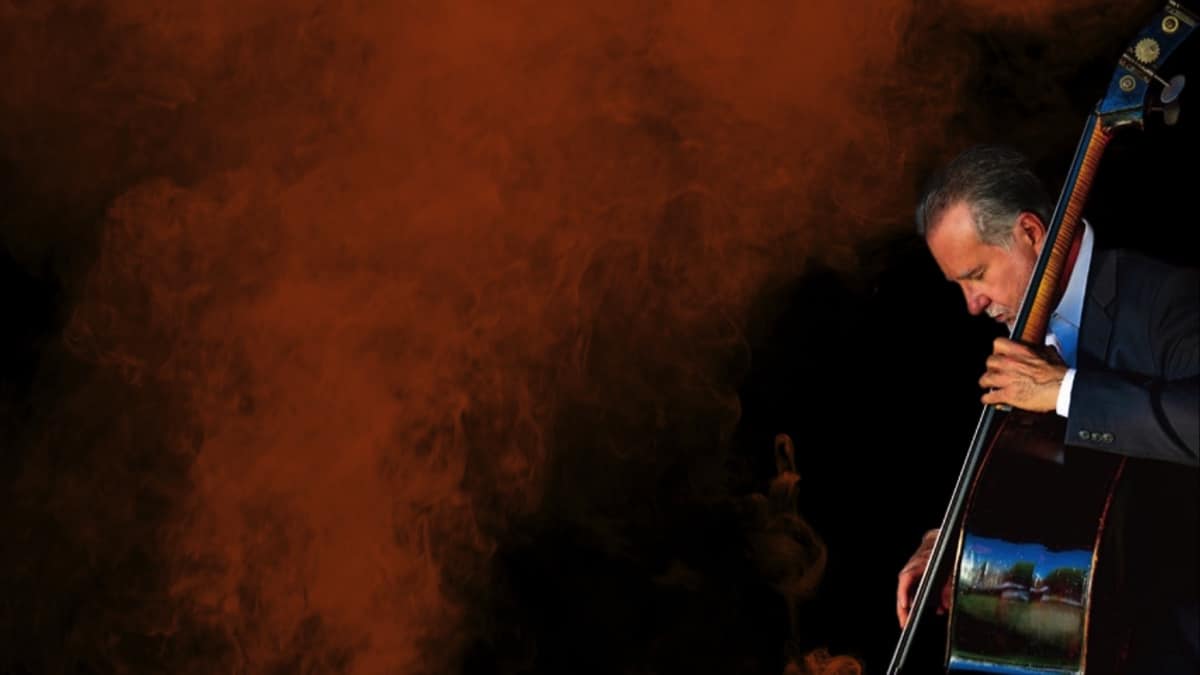
Brian Bromberg, Paying Tribute to Scott LaFaro, April 2024…

Brian Bromberg is one heavy-hitting bass player and I am in awe of his talent as one of the few individuals who is equally proficient on electric and upright bass.
You might remember our conversation back in 2018 when he released his powerhouse Funk album. Brian’s “A Little Driving Music” album is a staple on all our road trips and his Jaco and Jimi Hendrix tribute albums are mind-blowing… and I could go on and on.
Now, Brian has taken on the arduous task of producing an album paying tribute to the late, great, Scott LaFaro. He teamed up with pianist Tom Zink and drummer Charles Ruggiero and Brian delivers a commanding performance on upright. The entire album is a masterpiece and a real treat to listen to track after track.
Join us as Brian shares the details behind this project and more.
Photo, Michel Bocandé
Featured Videos
Visit Online
brianbromberg.net
FB @BrianBrombergBassist
YouTube
Cover
Leland Sklar, Over Half a Century of Bass, March 2024
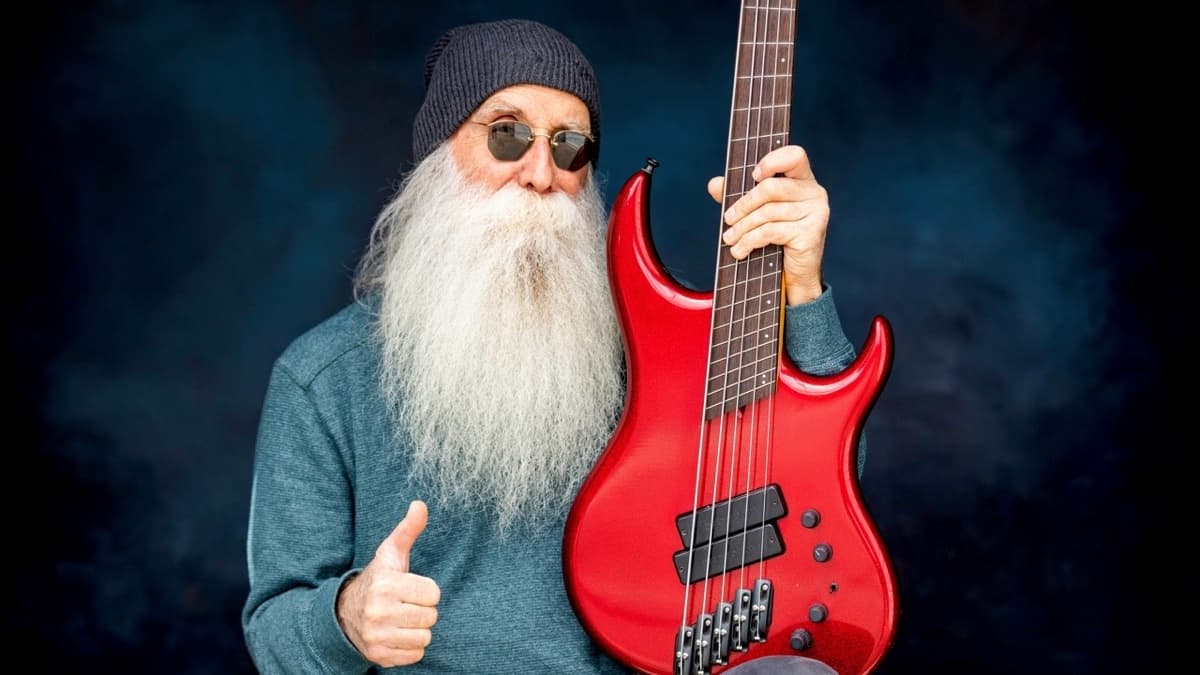
We all have enjoyed Leland Sklar’s Bass lines for over half a century.

You might remember that we had him on our cover back in 2017 and did an update when he launched his book “Everybody Loves Me” in 2020. It was exciting to hear that The Immediate Family had got back together in the studio to work on their own music in 2019 and are now up to two albums.
Just last December, Magnolia Pictures released a documentary titled “Immediate Family” where we got a behind-the-scenes look at the massive contributions Danny Kortchmar, Waddy Wachtel, Ross Kunckle, Leland Sklar and Steve Postell have made in countless songs that are the very essence of our daily personal musical soundtracks. Seeing the astronomical roster of performers they have supported over many years is very eye-opening. It is a must-see for any music lover!
Now, I am thrilled to bring you a special chat with Leland Sklar where we go more in-depth into the bass side of his musical journey.
Photos: Header, Rob Shanahan – Cover Photo, Jay Gilbert/Chris Schmitt
Featured Videos:
Skin In the Game – https://www.youtube.com/watch?v=QhbnzIrdjJ8
from new album Skin In The Game
The Toughest Girl In Town – https://www.youtube.com/watch?v=UVQLZIRfLjU
from new album Skin In The Game
Fair Warning – https://www.youtube.com/watch?v=1DN18DYwLsU –
from the self-titled album The Immediate Family
Visit Online
www.immediatefamilyband.com/
www.facebook.com/TheImmedFamily
www.instagram.com/theimmedfamily/
Bass Videos
Ricky Phillips, STYX Bass And More – February 2024
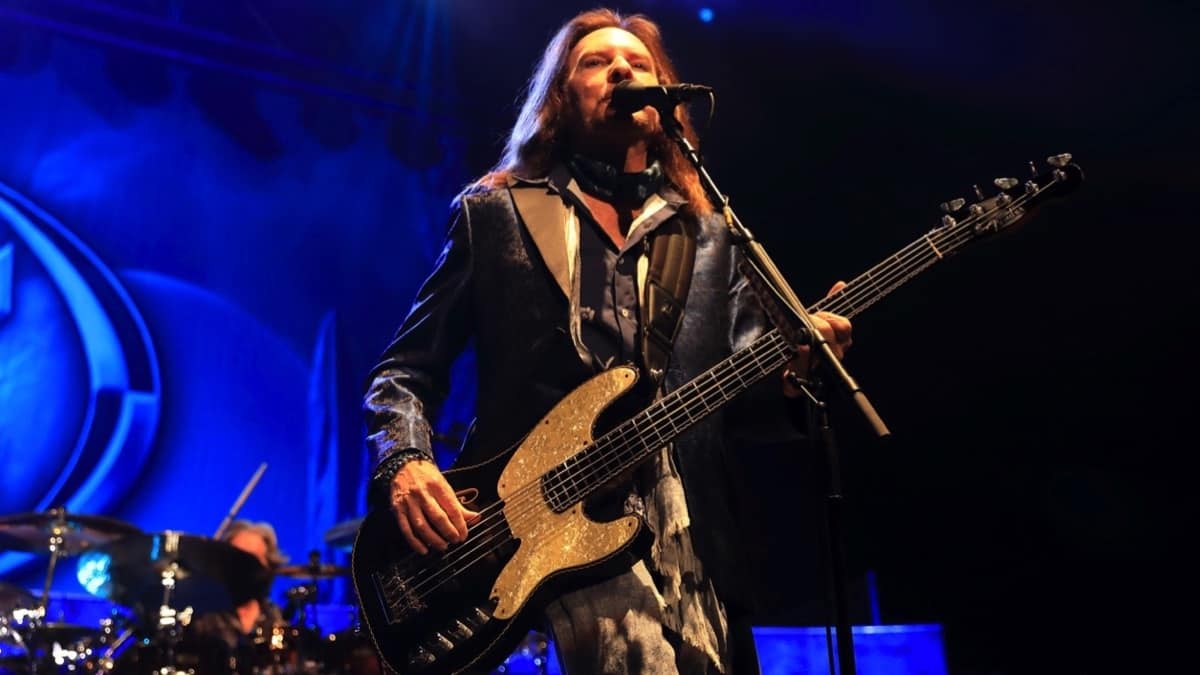
Ricky Phillips, STYX Bass And More…

I have always been a huge Styx fan. Their music kept me awake during countless nights studying and gave my imagination a place to escape when I had a moment to take a break.
I had the immense opportunity to chat with STYX bassist Ricky Phillips for our August Cover in 2017 and follow his projects as time passed. Now, I am thrilled to have the opportunity to catch up with Ricky as he has been super-busy over the past six years.
Join me as we take a deep dive into the band’s most recent album “Crash the Crown” and EP “The Same Stardust”. Ricky shares some insights into the herculean team effort behind the scenes and the musical process that keeps them ever so busy and how he has updated his sound.
Without further ado… Here is Ricky Phillips!
Photo: Jason Powell
Featured Videos:
“Crash of the Crown” lyric video
“Reveries” lyric video
“Save Us From Ourselves” lyric video
“Sound the Alarm” lyric video
“Too Much Time On My Hands” Zoom video 2020
Visit online:
www.Styxworld.com
FB & IG @styxtheband
Bass Videos
Jeff Pilson, Foreigner Low End – January 2024
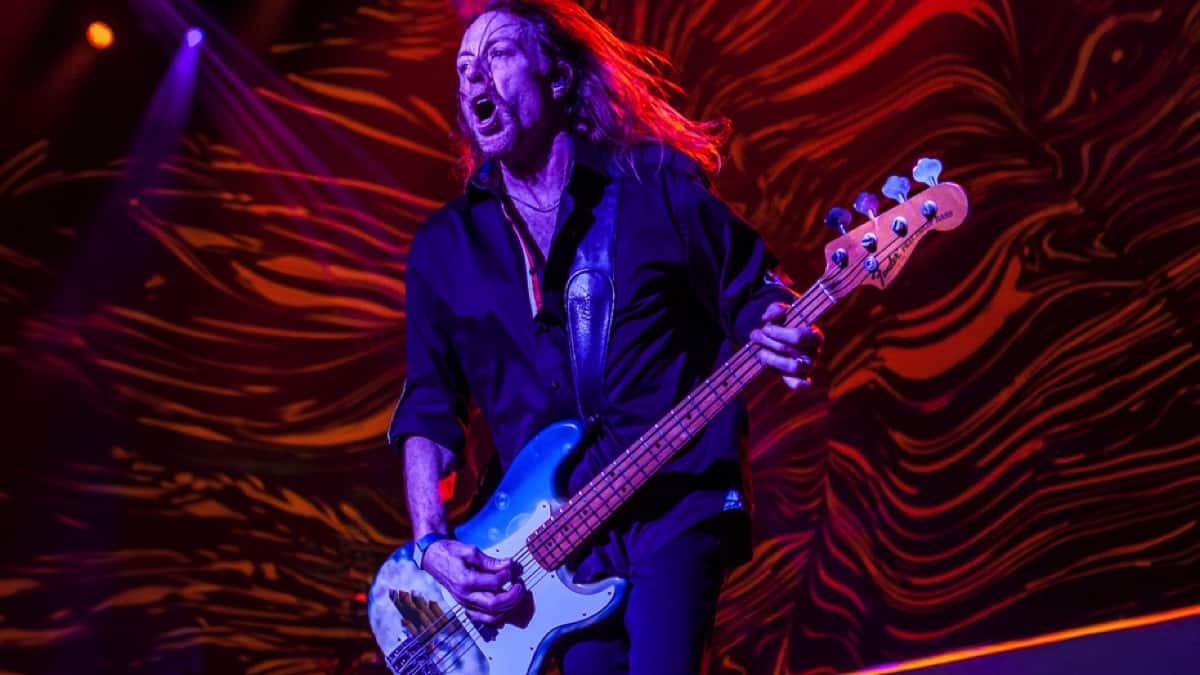
Jeff Pilson, Foreigner Low End – January 2024…

Those of us who were around back in the 70’s remember how certain songs on the radio resonated with us. It turns out that many of these iconic melodies came from Foreigner and they were part of our personal soundtracks!
After all these years, the band is going as strong as ever with Jeff Pilson firing away on bass midstream into a 2-year farewell tour.
I am excited to be able to bring you all the details about Jeff’s musical Journey, the farewell tour in progress, how he gets his sound and his plans for the future.
Cover Photo: Krishta Abruzziini / Video Photos: Krishta Abruzzini, Karsten Staiger, Gina Hyams
Featured Videos
For more news on FOREIGNER and upcoming Farewell Tour dates, fans can visit:
foreigneronline.com
facebook.com/Foreigner
twitter.com/ForeignerMusic
instagram.com/foreignerlive
youtube.com/user/FWebTeam
Also on FB @officialjeffpilson
Bass Videos
Rodney O’Quinn, Rockin’ Hard Through the Years – December 2023
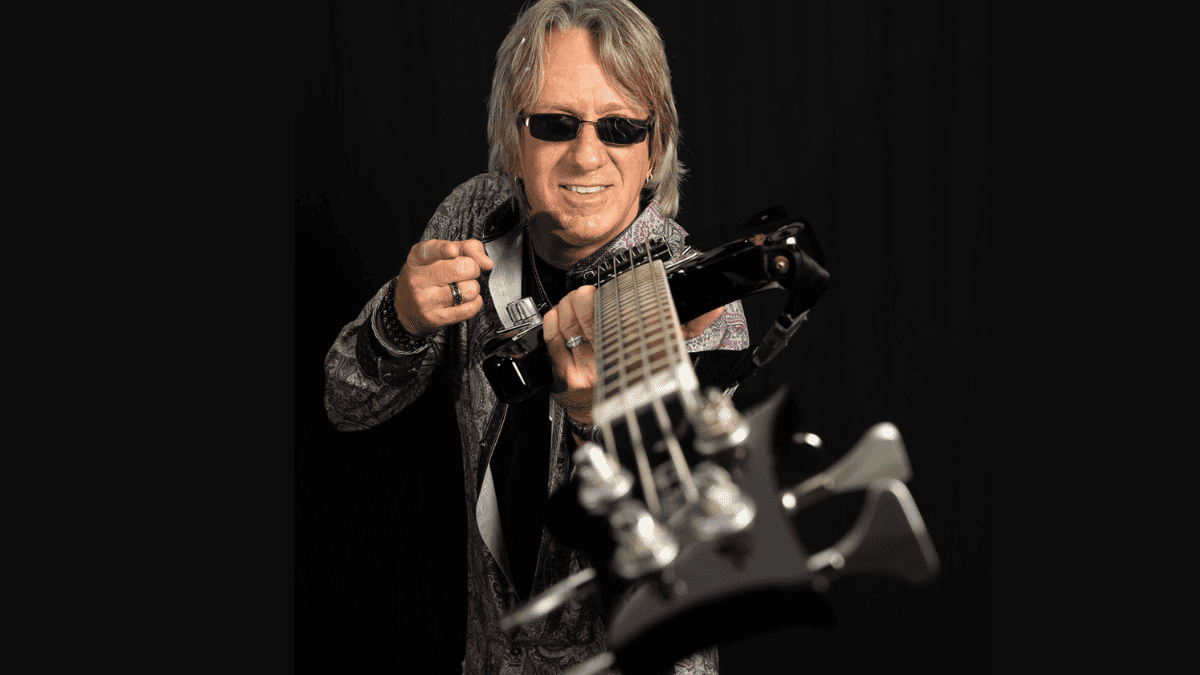
Interview With Foghat Bassist Rodney O’Quinn…

Many rock fans have enjoyed music by Foghat, who originally formed in London back in 1971.
Over the many decades of playing, the band members have changed, leaving behind only Roger Earl as the only original member. Bassist Rodney O’Quinn left the Pat Travers Band and joined the group in 2015 and has been laying down the low end for this iconic quartet keeping the Foghat legacy alive. With a new album titled “Sonic Mojo” which dropped on November 10th, the band is as busy as ever and there is lots of very tasty music to come.
Join me as we learn of Rodney O’Quinn’s musical journey, how he gets his sound, and his plans for the future.
Photos:
Cover, Jake Coughlin
Video Thumbnail, Tom Apathy
Photos used in the video: Kerry Quinn, Chuck Lanza, Kim Granger, Kenneth Strohm, Jake Coughlin, Jay Jylika
Featured Videos:
1st Single from Sonic Mojo – Official “Drivin’ On”
2nd Single from Sonic Mojo – “She’s a Little Bit of Everything Official Video
“Road Fever”- California Mid State Fair – Paso Robles, CA – 7-27-22
“Stone Blue” – Rodney O’Quinn Bass/Lead Vocals – Don Odell’s Legends – Woonsocket, R.I – 10/15/22 – The Stadium Theater
The Earl’s Court – Season 2, Episode 7: Funny Guys
“I Just Want to Make Love to You” – CasinoRama – 6-9-23
FOGHAT “Somebody’s Been Sleepin’ in My Bed” – Mohegan Sun, Uncasville, CT – 1/28/22
“I Just Want to Make Love to You” – California Mid State Fair – Paso Robles, CA – 7-27-22
Visit Online:
www.foghat.com
www.facebook.com/Foghat
www.twitter.com/FOGHAT
www.instagram.com/foghat_official
www.youtube.com/user/FOGHATMUSIC



















